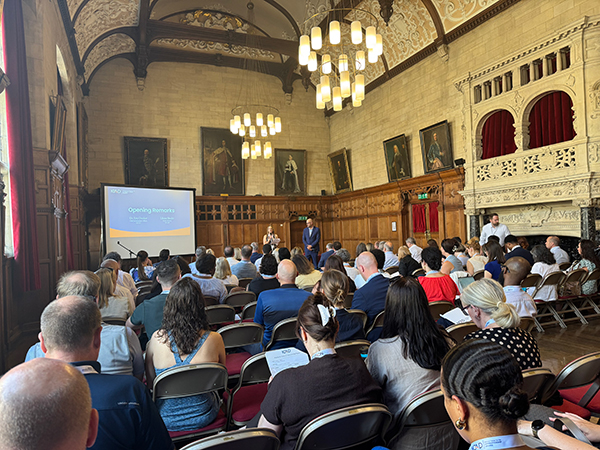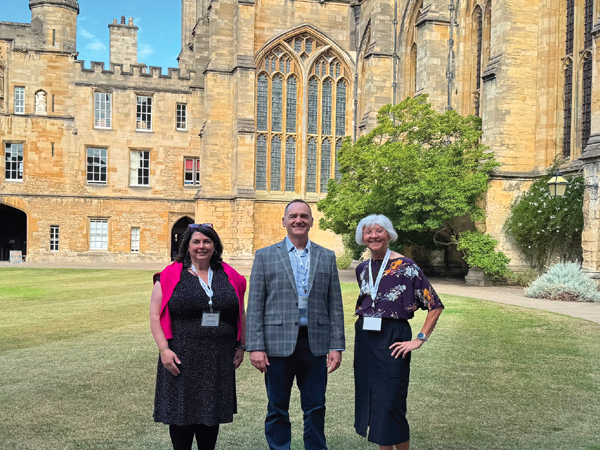From England to Arizona: CFA and Southern Arizona Leadership Council Bring Global Apprenticeship Innovation Home
For Center for the Future of Arizona (CFA) and our strategic partner the Southern Arizona Leadership Council (SALC), the International Center for the Apprenticeship Degree (ICAD) convening in Oxford, England, offered an invaluable opportunity to connect global innovation to Southern Arizona’s priorities. With the region’s economy, workforce, education, and quality of life top of mind, the convening highlighted apprenticeship degrees as an innovative model with real potential to strengthen and expand career pathways.
With employers across Southern Arizona seeking skilled workers and young people looking for affordable, relevant educational opportunities, apprenticeship degrees provide a pathway that blends academic learning with paid, real-world experience. By participating in ICAD, CFA and SALC engaged directly with international experts and peers who are testing — and succeeding with — new approaches to talent development that could benefit the region.

The convening highlighted how countries such as Germany, the UK, and Switzerland have embedded apprenticeship pathways into higher education systems, allowing students to earn degrees while working in paid positions. These models not only reduce student debt but also ensure graduates are prepared for careers on day one. The discussions also showcased how U.S. states and regions are beginning to replicate these successes by building stronger partnerships between employers, colleges, and workforce boards.
Southern Arizona faces many of the same challenges surfaced at ICAD: bridging the gap between employer needs and workforce skills, ensuring equitable access to quality education, and preparing young people for high-demand sectors such as healthcare, advanced manufacturing, and technology. CFA and SALC brought our region’s perspective into these global conversations while learning from proven strategies abroad.

Representing CFA were Cindy Erwin and Aaron Ball, Directors of College and Career Pathways, alongside SALC’s Cristie Street, COO. Together, we returned with fresh insights on how apprenticeship degrees could complement existing workforce development initiatives and create stronger career pathways for our community.
Most importantly, it reaffirmed that Southern Arizona is part of a global dialogue on aligning education with opportunity. Cristie shared takeaways being brought back to the region from this learning experience:
- That which aligns with shared incentives gets accomplished. Success depends on finding the right balance between educational institutions, employers, and degree seekers. In some countries, employers are encouraged to participate in degree-based apprenticeship programs through tax credits or wage reimbursement funded by employment taxes. In others, colleges and universities are motivated by how credit hours and enrollment are counted and billed.
- Timing is everything and our country is now ready for a new conversation with new choices for investing time and money in secondary education. By focusing on return on investment and financial value, degree-based apprenticeships can be seen as a practical alternative to student debt — one that creates long-term financial stability for future generations.
- Momentum is strongest when targeted to specific industries. Instead of applying a one-size-fits-all model, apprenticeship degrees are most effective when tailored to fields with clear workforce needs. Regional demand should guide which industries take priority, but nationally there are clear opportunities in healthcare, education, and manufacturing — all sectors facing pressing workforce shortages.
Looking ahead, CFA and SALC will continue exploring ways to adapt lessons learned at ICAD into tangible action — whether through pilot apprenticeship degree programs, employer-education collaborations, or advocacy for supportive policies. By applying global insights to local challenges, we aim to help position Southern Arizona as a leader in building a resilient, future-ready workforce.
